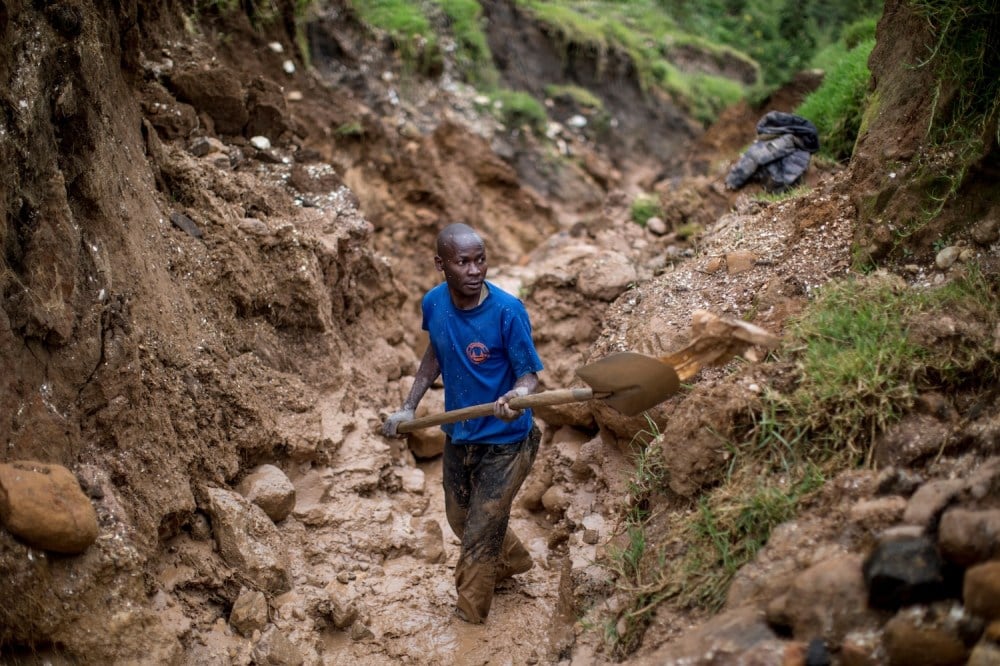Unpacking the Legal Battle: Why Congo Is Taking Apple to Court
The Democratic Republic of Congo (DRC) has been thrust into the global spotlight as it pursues a legal battle against tech giant Apple. This lawsuit raises profound questions about corporate responsibility and the ethical implications surrounding resource extraction in the region. At the heart of the matter is the DRC’s rich mineral wealth, particularly cobalt, which is essential for powering smartphones and electric vehicles. As the world increasingly turns to green technologies, the demand for cobalt has surged, placing the DRC at a critical juncture in its economic development. However, the country now seeks accountability from one of the largest corporations in the world, suggesting a deep-rooted issue that extends beyond mere legalities.
The Context of the Lawsuit
The DRC is home to over 70% of the world’s cobalt reserves, a mineral that plays a vital role in the production of lithium-ion batteries. Companies like Apple, which rely heavily on cobalt for their products, are increasingly scrutinized for their supply chain practices. The lawsuit filed by the DRC government alleges that Apple has failed to ensure that the cobalt used in its products is sourced responsibly. This claim arises amidst a backdrop of ongoing human rights abuses and environmental degradation associated with artisanal mining operations in the region.
The DRC’s government argues that Apple’s negligence in monitoring its supply chain has contributed to a cycle of poverty and exploitation among local miners. Many of these miners work in hazardous conditions without proper safety equipment, and child labor remains a grave concern. By holding Apple accountable, the DRC aims to compel the tech giant to adopt more stringent ethical sourcing practices that could lead to improved conditions for miners.
The Implications of the Lawsuit
This legal confrontation could have far-reaching implications for both the DRC and global corporations. Here are several key aspects to consider:
- Corporate Accountability: The outcome of this lawsuit could set a precedent for how multinational corporations are held accountable for their supply chains. If the DRC prevails, it may encourage other nations to pursue similar actions against corporations that fail to uphold ethical standards.
- Ethical Sourcing Standards: A ruling in favor of the DRC could lead to the establishment of more rigorous ethical sourcing standards across the tech industry. Companies might be compelled to conduct thorough audits of their supply chains to ensure compliance with human rights and environmental regulations.
- Consumer Awareness: This lawsuit is likely to heighten consumer awareness regarding the origins of the materials used in their devices. As consumers become more informed about the implications of their purchases, companies may feel pressured to adopt more sustainable practices.
- Impact on Local Economies: A legal win for the DRC could lead to increased investment in the local mining sector, fostering better working conditions and economic development. Conversely, a loss might perpetuate the status quo, wherein miners continue to work under exploitative conditions.
Apple’s Response and Corporate Responsibility
In response to the allegations, Apple has stated its commitment to responsible sourcing of materials. The company has implemented initiatives aimed at ensuring that the cobalt used in its products is sourced ethically. This includes working with suppliers to improve conditions in artisanal mines and investing in projects that support local communities.
Despite these efforts, critics argue that Apple has not done enough. The lawsuit emphasizes that corporate responsibility should extend beyond mere PR initiatives; companies must actively participate in improving the conditions of those who extract the resources they depend on. This legal battle may force Apple to reevaluate its practices and commit to more substantial changes.
The Global Context of Resource Extraction
This legal dispute is not an isolated case. It mirrors a broader trend where countries rich in natural resources are increasingly demanding accountability from multinational corporations. The extraction of minerals in developing countries often raises ethical questions about labor practices, environmental policies, and fair trade.
In recent years, several regions have witnessed similar confrontations. For instance, lawsuits in South America regarding lithium extraction and mining practices have emerged, fueled by concerns over indigenous rights and environmental degradation. As the global demand for minerals necessary for technology and renewable energy increases, resource-rich countries are becoming more assertive in seeking fair compensation and ethical practices from corporations.
Future Prospects: The Path Forward
As the legal battle unfolds, it remains to be seen how the courts will respond to the DRC’s claims. However, several potential outcomes could materialize:
- Settlement and Negotiation: Both parties may reach a settlement that leads to improved practices and investment in local communities, thereby avoiding a lengthy court battle.
- Policy Changes: Regardless of the lawsuit’s outcome, it may prompt Apple and other tech companies to adopt more stringent policies regarding ethical sourcing and corporate responsibility.
- International Collaboration: The situation might encourage greater international collaboration to establish standards for responsible resource extraction, benefiting both corporations and the countries from which they source materials.
Conclusion
The lawsuit filed by the Democratic Republic of Congo against Apple represents a significant moment in the ongoing conversation about corporate responsibility and ethical resource extraction. As the world becomes more reliant on technology, the need for companies to ensure that their supply chains are free from human rights abuses and environmental harm has never been more critical.
This legal battle is not just about accountability; it is about the future of communities in the DRC and the global tech industry’s role in shaping that future. By unpacking the complexities of this lawsuit, we can better understand the interconnectedness of our global economy and the ethical obligations that come with it. Whether this case will lead to meaningful change remains to be seen, but it undoubtedly highlights the urgent need for corporations to act responsibly in their pursuit of profit.
See more Business Focus Insider Team

